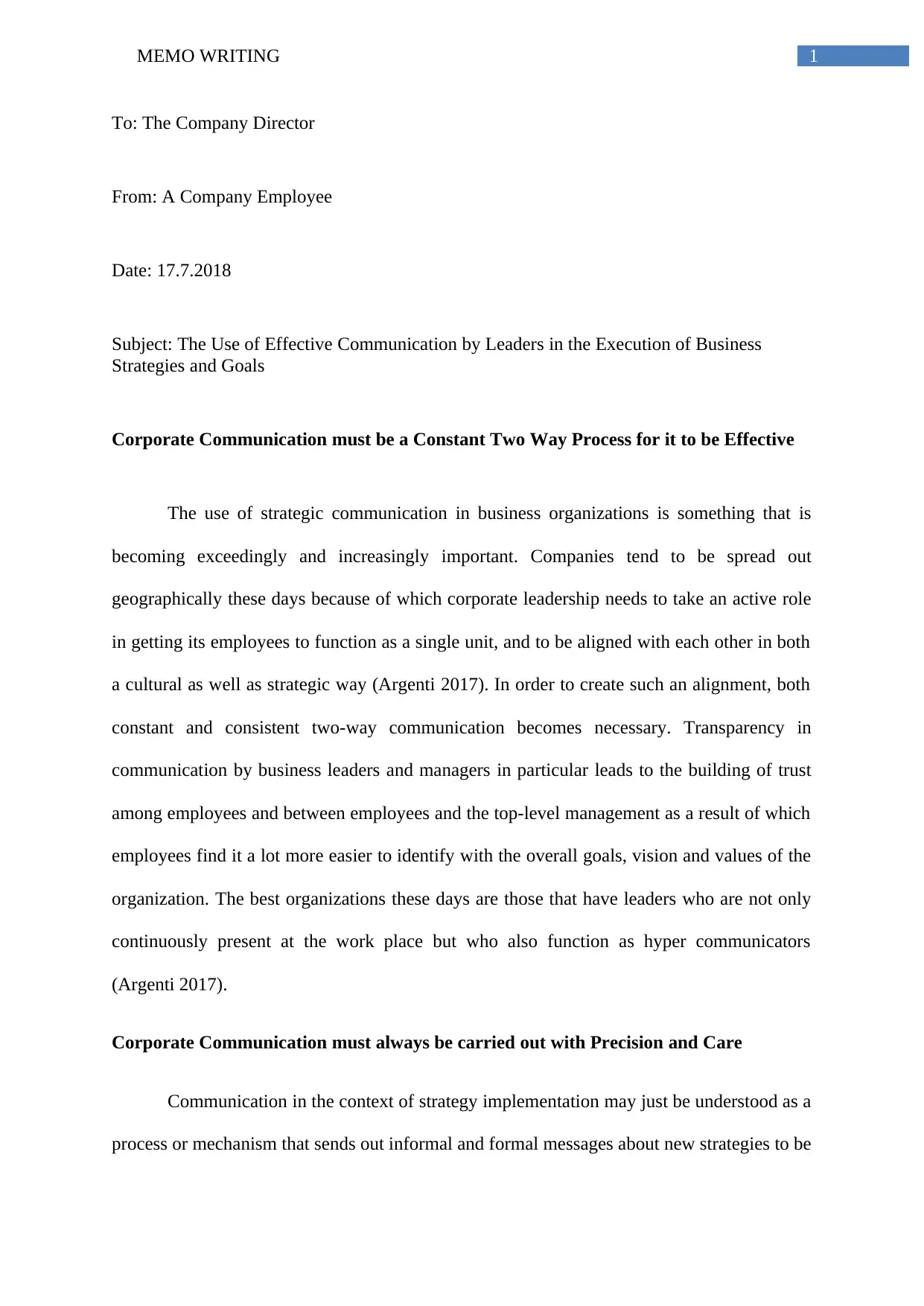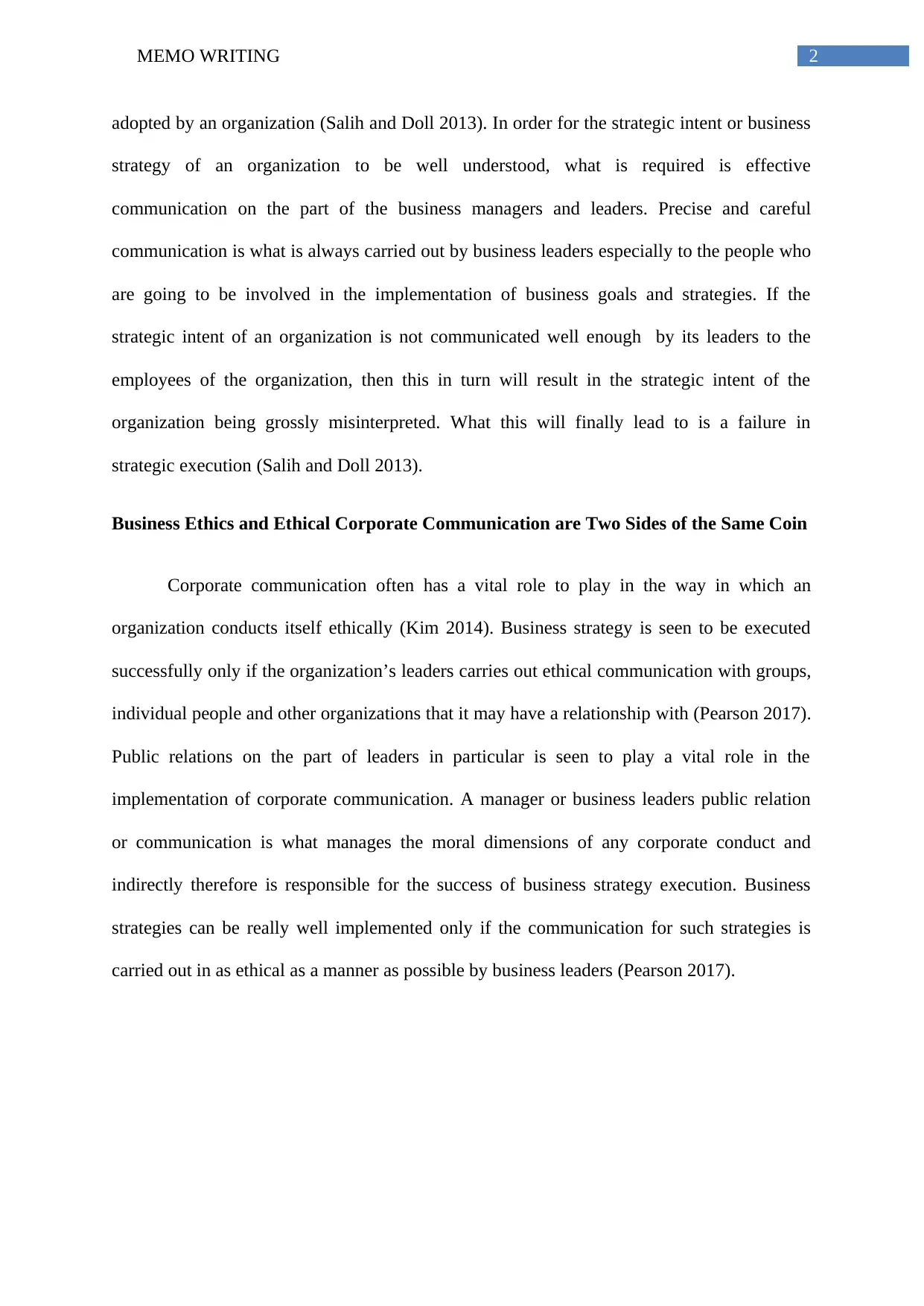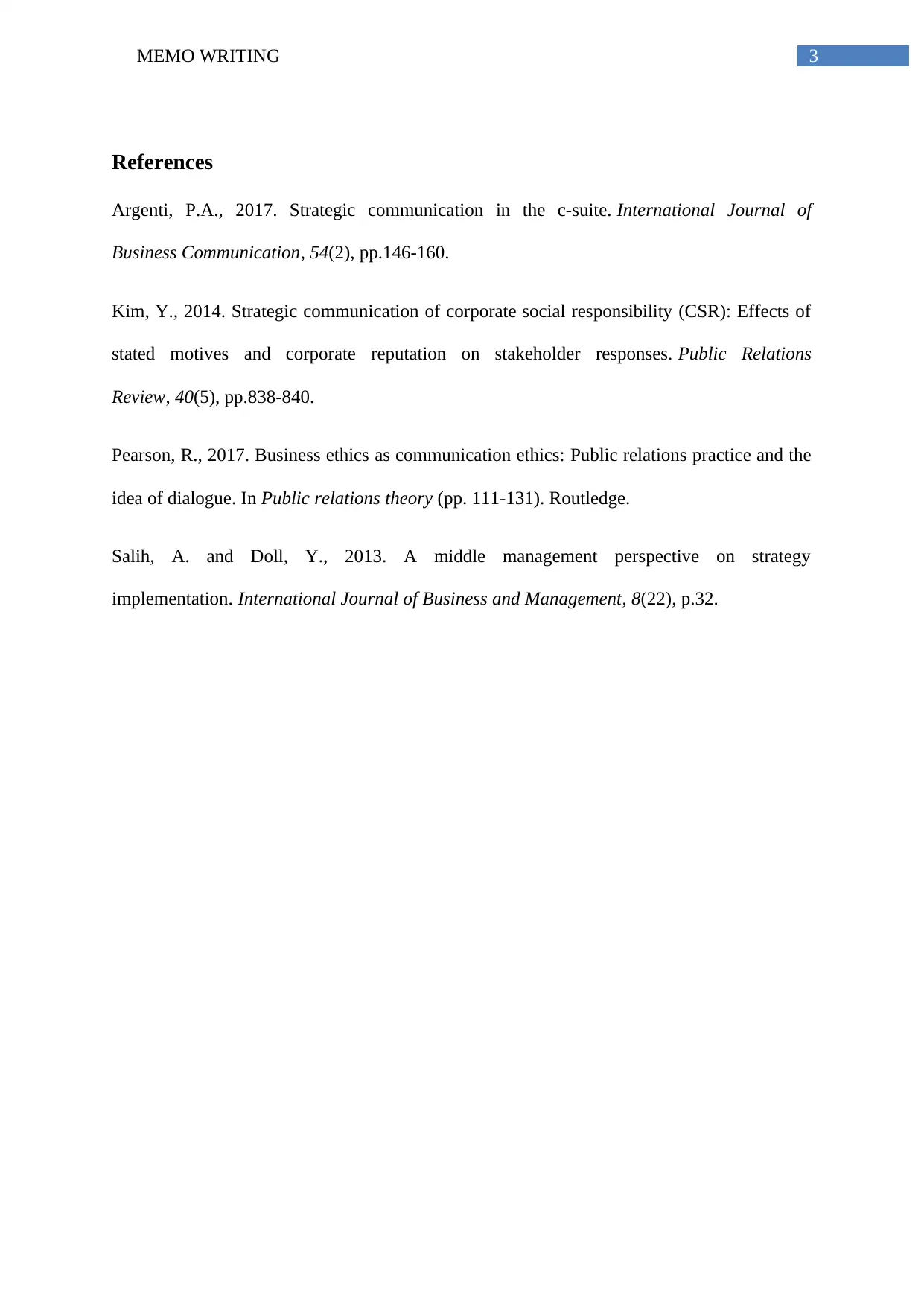Executive Summary: Leaders Use of Communication to Execute Strategy
VerifiedAdded on 2023/06/09
|4
|702
|249
Report
AI Summary
This memo report, prepared by a student for the MNG81001 course, provides an executive summary on how leaders utilize communication to execute strategy in the 21st century. The report is based on an analysis of the Argenti article "Strategic Communication in the C-Suite" and incorporates research from two additional academic or industry journal articles. The memo emphasizes the importance of two-way communication, transparency, and ethical considerations in corporate communication. It highlights how effective communication builds trust, aligns employees with organizational goals, and ultimately contributes to successful strategy implementation. The report explores the shift from tactical to strategic communication approaches and the role of leaders as hyper-communicators in fostering a unified and strategically aligned workforce.
1 out of 4









![[object Object]](/_next/static/media/star-bottom.7253800d.svg)